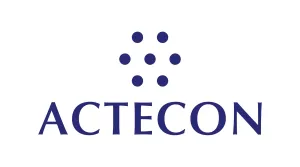In 2014, Europe's largest telecoms provider Deutsche Telekom and its Slovak subsidiary were imposed a total fine of €69.84m by the European Commission for abusing their dominant position in Slovakia's broadband internet infrastructure market1. The Luxembourg-based General Court ("GCEU"), partially annulled the decision of European Commission ("Commission") and reduced the antitrust fines imposed on Deutsche Telekom by about a third, from €31m to €19m, and joint fine imposed on Deutsche Telekom and Slovak Telekom, from €38.84m to €38.08m, by stating that EU regulators made a mistake while calculating the amount of fine2.
This decision shows that the nature of the parent-subsidiary relationship is of vital importance for calculating the amount of fine in competition law. Since fines constitute a certain proportion of companies' turnovers, the question of whether the parent company's turnover will be included in the calculation of the fine is crucial. Although it is accepted that the Commission has discretion in that respect, the criteria on which the Commission relies when exercising such discretion are not clear. In the Deutsche Telekom decision, the General Court drawn a framework as to when the liability of the parent company could exceed that of its subsidiary through assessment of the "factors reflecting the individual conduct of the parent company in the infringement".
Facts of the Deutsche Telekom Case: 2014 decision
Until 2000, Slovak Telekom had held a legal monopoly in the Slovakian telecommunications market. However, after the liberalization in 2000, a local loop unbundling obligation was imposed on Slovak Telekom, whereby it must provide access to its local loop "under transparent, fair and non-discriminatory conditions"3.
In its decision, the Commission held that Slovak Telekom is in a dominant position in the upstream market for wholesale local loop access. The Commission further decided that Slovak Telekom had been abusing its dominant position through setting out unfair terms and conditions for providing access to the local loop, which amounts to refusal to supply, and via pricing policies that constitute margin squeeze4.
According to the Commission, the anti-competitive conduct had continued for more than five years5, from 2005 to 2010. The starting point was deemed as the day on which Slovak Telekom published its reference access offer, which comprised unfair terms and conditions.
As a result of the Commission's assessments, two companies were imposed a joint fine of €38.8m and Deutsche Telekom was further imposed an additional fine of €31m. It should be mentioned that Slovak Telekom is a subsidiary of Deutsche Telekom as Deutsche Telekom holds more than 51% of the share capital of the Slovak Telekom6. Deutsche Telekom became a party of this investigation due to this relationship and it was held liable accordingly.
GCEU held that the Commission's calculation was not correct
The companies challenged the decision of the Commission before the GCEU. While the GCEU upheld the Commission's assessments regarding the abuse of dominant position, it partially annulled the decision and reduced the amount of fine on the following grounds:
- The GCEU held that the Commission had failed to demonstrate exclusionary effects of margin squeeze during the last four months of 2005 and since the margins remained positive during these months, the GCEU decided that the amount of the joint fine shall be reduced accordingly.
- The GCEU pointed that "the Court points out that, where the liability of the parent company is purely derivative of that of its subsidiary, the liability of that parent company can exceed that of the subsidiary only where there are factors which individually reflect the conduct for which the parent company is held liable. The Court considers that the status as a repeat infringer of the parent company, Deutsche Telekom, constitutes a factor which individually reflects its conduct which could justify an additional fine being imposed on it by the Commission. By contrast, the Court considers that Deutsche Telekom's turnover is not capable of reflecting its individual conduct in the infringement at issue and that it therefore could not serve as a basis for the calculation of an additional fine imposed on the latter". Consequently, GCEU ordered that the amount of the fine shall be reduced.
Deutsche Telekom stated that although it was pleased by the latest decision of the GCEU, it was not satisfied by all respects of the decision and might file an appeal to the European Court of Justice ("ECJ"), which is the highest court of the EU. Deutsche Telekom argued that it is not normal that rulings in national competition cases taken as a basis to decide on an anti-trust infringement under EU law and that the court had failed to demonstrate the procedural errors in relation to Commission's economic analysis and calculation of fine clearly in its decision.
Besides Deutsche Telekom, the Commission could also appeal the decision of the General Court to ECJ7.
Parent Company's Liability under Turkish Competition Law
There are similar cases whereby Turkish Competition Authority ("TCA") evaluated the parent-subsidiary relationship for the purposes of determining the parent's liability and the fine to be imposed. As a general principle, in Turkish competition law, parent companies may be liable due to their subsidiaries' breach. The TCA generally assesses whether the parent company has direct influence over the anti-competitive strategies of its subsidiary. Regarding the position of the parent company, there are two possibilities.
If the parent company is directly or indirectly involved in the anti-competitive conduct of the subsidiary, it will be held jointly and severally liable from the violation. If, on the other hand, the parent company is not directly or indirectly be involved in the violation, the degree of control that the parent company exerts over its subsidiary is examined the extent of the liability of the parent company is evaluated accordingly.
The most notable decision of the TCA whereby the liability of the parent company from the anti-competitive conduct of its subsidiary is the Türk Telekom decision8. This was also a margin squeeze investigation in the Turkish fixed broadband internet market which was initiated against the incumbent operator Türk Telekom that acquired the DSL broadband internet infrastructure through privatization, and its wholly owned subsidiary TTNET, which operates in the retail fixed broadband internet market. The TCA imposed a total fine of TRY 12.4m (approx. €6,5m as per the average currency rates in 2008), which was calculated over the combined turnover of the companies and for which both companies were held jointly and severally liable.
The TCA held that the downstream market in which TTNET operates was foreclosed due to the practices of Türk Telekom and TTNET which amounted to margin squeeze. Similar to Deutsche Telekom decision, the TCA first held that Türk Telekom and TTNET, which constituted a single economic entity despite being separate legal entities, held a dominant position in wholesale broadband internet access and retail broadband internet markets.
Türk Telekom claimed that Türk Telekom and TTNET should not be deemed as a single entity as the very reason why TTNET was created as a separate legal entity to operate in the downstream market was the TCA's opinion during the privatization process. Türk Telekom argued that this legal entity separation, and the related regulations, prevented Türk Telekom from affecting the competition in the downstream market. Hence, Türk Telekom claimed that it should not be held liable for any conduct that only had effects in the downstream market. However, the TCA held, by referring to the Competition Law, the EU case law and the Council of State9 that these companies constituted a single economic entity from the perspective of competition law and that the mere separation of legal entities did not change this fact.
After clarifying this issue, the TCA stipulated that a case-by-case analysis would be required to decide which companies within the same economic entity will be held liable for the violation and how the relevant turnover will be calculated. The TCA held that margin squeeze was a special type of anti-competitive conduct through which the downstream market is foreclosed to the competitors of the dominant undertaking due to the relation between the wholesale and the retail prices (i.e. the very thin or negative margin makes it impossible for the competitors to economically replicate dominant undertaking's offers). Since neither the wholesale prices of Türk Telekom nor the retail prices of TTNET were individually responsible for the violation but it was the combined strategy of the two companies, the TCA decided that TTNET and Türk Telekom shall be held jointly and severally liable, and that the fine shall calculated based on the total turnover of the economic entity. It is important to note that the decision did not include an assessment in relation to whether Türk Telekom had an impact on the commercial strategies of TTNET.
Conclusion
In the light of foregoing, parent companies could be held liable for the anti-competitive conduct of their subsidiaries both under Turkish and EU competition law. Up to now, the TCA was mainly concerned with the involvement of the parent company in the violation. The Deutsche Telekom decision may lead to the introduction of a new dimension for determining the boundaries of the liability of the parent company, which is the analysis of the "factors reflecting the individual conduct of the parent company in the infringement". Considering the Turkish Competition Law has been modelled after the EU Competition Law and that the TCA closely follows the EU case law, it is possible that the Deutsche Telekom decision may affect Turkey as well.
Footnotes
1. https://eur-lex.europa.eu/legal-content/EN/TXT/?uri=uriserv:OJ.C_.2015.314.01.0007.01.ENG
3. https://curia.europa.eu/jcms/upload/docs/application/pdf/2018-12/cp180196en.pdf
4. https://eur-lex.europa.eu/legal-content/EN/TXT/?uri=uriserv:OJ.C_.2015.314.01.0007.01.ENG
6. https://curia.europa.eu/jcms/upload/docs/application/pdf/2018-12/cp180196en.pdf
8. TCA's decision dated 19.11.2008 and numbered 08-65/1055-411.
9. Council Of State, Plenary Session Of The Chambers For Administrative Cases, Stay of Execution Decision, Appeal No:2007/246.
The content of this article is intended to provide a general guide to the subject matter. Specialist advice should be sought about your specific circumstances.



